By changing your shopping behaviour and shopping that bit smarter, you can cut your bill in half. Being a savvy food shopper goes beyond couponing.
Here's how...
1. Plan, plan, plan
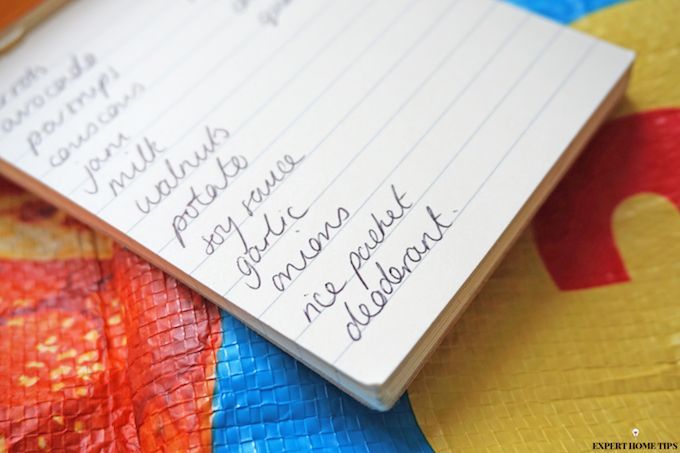
By keeping an ongoing shopping list in your kitchen and updating it when you run out of certain ingredients, you'll always buy the essentials that you really need.
Before you go on your weekly shop, sit down and look at some recipes online or in your favourite cookbooks. Make a list of what meals you can make with the same ingredients and then plan what you can make for lunch using the leftovers.
Before you set off, give yourself a set budget and stick to it. Make sure you allow yourself some treats on your shopping list and budget for spontaneous purchases.
2. Ditch the trolley and pick up a basket
According to studies, you are 40% more likely to spend more if you shop with a trolley. So if you're doing a quick mid-week shop then stick to a basket - and give your arms a workout, not your wallet!
You'll be more aware of what you're purchasing and as the basket gets heavier, take time to stop and review your shopping - take out non-essentials and impulse buys along the way that you really don't need.
3. Learn to perimeter shop
As you make your way around the supermarket, stick to the outside aisles. It's here you'll find all the staples like meat, vegetables, bread and other's essentials (you'll also find wine and beer on the outside - make of that what you will!) while all the luxuries and expensive treats sit in the middle aisles.
It's also worth doing a straight trip down the central aisles as this is where all the bargains can be found.
4. Downgrade big brands
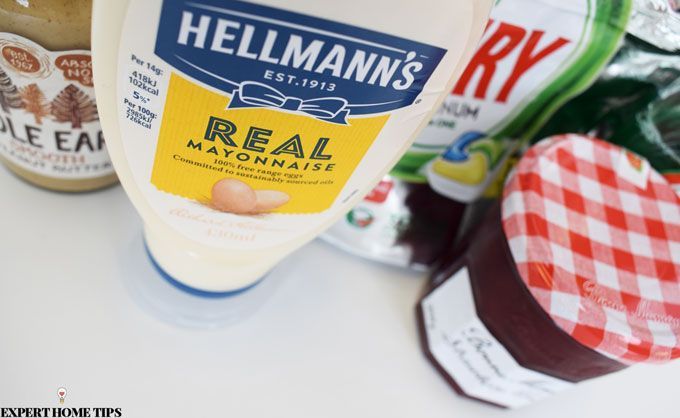
Unless you particularly love a branded product and can't live without it, it's worth downgrading big-name products to value or supermarket own alternatives.
Value products can be up to three times cheaper and you won't know if it takes any difference without trying it first. Start by switching to an own brand and if you don't notice a difference, switch down the value range. Make a note of what tastes the same and what doesn't.
If you're sceptical, try downgrading these food items first: cleaning products, bathroom essentials, jam, peanut butter, flour, and dairy products.
5. Look...but don't touch!
Experts have found if you touch a product for more than thirty seconds it will increase your feelings of ownership and desire. Unless you really need to touch the item, make the decision on whether you need it by only looking at it. Don't be tempted to pick it up unless you need to read the packaging or you've decided it's definitely going into the basket.
6. Discover the international aisle
You can pick up bags of rice, pulses, spices and beans for half the price if you make an effort to seek out the bargains in the world food aisles. You can pick up chilli and curry powder for a fraction of the cost and it's bound to taste more authentic.
7. Shop for fruit and vegetables at the market
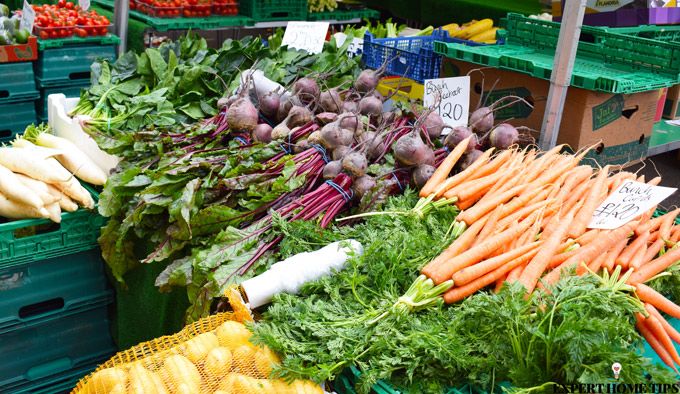
If you have a local market, head down at the end of the day on your way home from work or college. Fruit and vegetables are usually cheaper at markets than at the supermarket, and at the end of the day, you have more room to haggle to get a rock-bottom price. The stall holders will want to shift any leftover stock so put your bartering skills to the test.
8. Scan the shelves up and down
Supermarkets place popular items (and the most expensive) in the middle of the shelf close to your eye line.
Don't forget to scan up and down the shelf as it's here you'll find the lesser known brands that may be cheaper or offer more value for money. Don't be afraid to try our a new or foreign brand that you don't recognise - you could find a gem!
9. Re-think your meat
Inevitably, the most popular cuts of meat tend to be the most expensive. Why not experiment with different cuts and save yourself up to £30 a month? Chicken thighs are cheaper than breast, as is pork belly and shin of beef.
Whilst you're re-thinking your meat, try swapping your usual salmon and tuna purchases for cheaper mackerel, kippers, pollock or trout. They're healthy and surprisingly easy to work into a fish dish.
10. Don't be sucked into a BOGOF
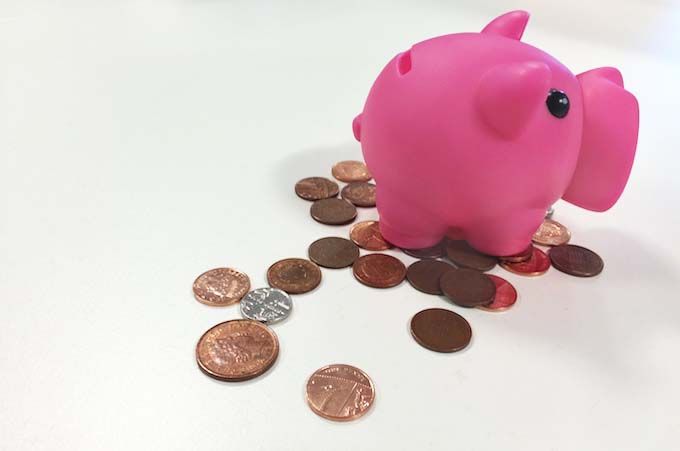
Before you get fooled by a 2 for 1 offer, have a look at what alternatives are available. You could still get two of the same product from a different brand for cheaper, or a larger quantity for the same price.
Also, think about whether you'll actually eat or use the item before it goes past best. BOGOFs are fantastic for essentials like refuse sacks, tinned goods and pasta. Don't get perishable items that will only end up in the bin!
Next up, read our energy saving tips and find more ways to slash your spending.
Thanks for reading! Do you have any tips on how to keep your shopping bills down?
Please tell us in the comments section below.

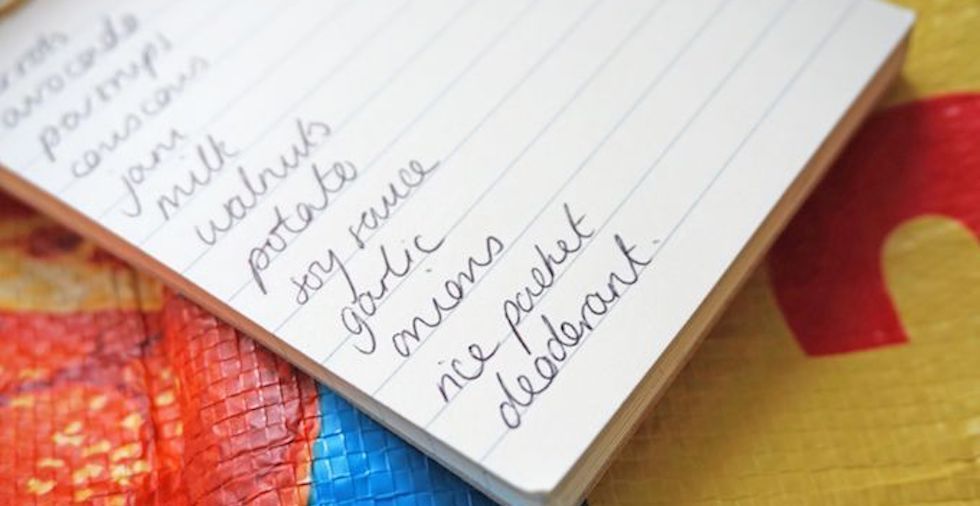
I find it easier to shop online them I'm not tempted to buy in more food that I don't really need.
That’s a great idea – less chance of stumbling upon chocolate that way!
I buy the three for 10.00 deals and put in the freezer and then use through the month to make meals and thus all I need is the veg each week. I make my own bread that is 25p per loaf!!!!!!! and lovely
First we only have a market once a month where i live, they are not ubiquitous. Second I really do not see how I could half my food shopping, there are only 2 of us at home now, but i only spend £45 per week on everything including cleaning stuff, toothpaste, shampoo etc. I shop online as I have worked in retail for years and never wanted to stand in a queue if I had just finished work at 9pm, and also I don't have a car which is an expense nobody ever counts on their shopping. I buy fresh veg and a good mix of food for fresh meals I also make my my own bread quite often but it is wholemeal and cost a bit more than 25p, it is however very good and contains no preservatives. We do not buy tons of stuff we will not use as I do weekly meal plans every sunday as part of my sunday cleaning routine. If anybody thinks they can half my food shooping costs which are, after taking out the other stuff, about £34 per week for 2 adults, please, show me how. I budget more than naybody I know.
Hi Rose. You sounds like an amazing food shopper! We're very impressed with your money-saving techniques. The only thing I can suggest to cut your bill further is to shop somewhere cheaper, such as Aldi or Lidl. It's amazing what you can save there. Thanks for sharing :)
On-line main grocery shops certainly work for me. I'm not tempted by the 'bargains' and 'specials'. I do miss the 'sell by' reductions but I do appear to be saving money right now.
That's great! Happy Saving Kathryn... although do you ever miss the smell of freshly baked bread?!
If you buy organic vegetables then buy potatoes and carrots from a market/shop/vegebox delivery as these are the cheapest vegetables for the quantity. If you have a garden, even a small area grown your own sprouting broccli, green beans and courgetts as these can be expensive in shops. Courgetts can be quite easy to grow. Buy vegetables and fruit in season. Use a slow cooker, fantastic for stews and soups. Make batches and freeze them, so you have convience food ready when you are very busy. Freeze bread, take out slices and defrost overnight ready for breakfast. If you live on your own this saves throwing half the loaf away when it's gone stale/mouldy.
Lovely tips, thank you so much Elen! Do you grow all your own vegetables at the moment?
Go up and down the bottom isles first and then the top then you can miss out isles you don't need to go down and are not tempted.
Hi Christine. Me and my Mum always used to do this and it has stuck with me! Although I must admit, I do always seem to end up down the chocolate and sweets isle, regardless of my plans!
some times larger joints of meat may be on offer cut in half and freeze the second one. I always freeze bread and rolls as previous comment saves throwing out waste. My favourite saver (and my friends who I shared with) I buy lemons in a bag, slice and cut slices in halve, then freeze on a tray. Lemon slices on tap for tea, water, gin whatever you care for....
Hi Penny. I am always scouting the reduced isles. I pick up a lot of great stuff, not just large joints of meat. Burgers, chicken breasts and even pre-prepared veg are great for freezing. I love your lemon idea - great tip! :) Thanks for sharing.
I do a on line shop. It's the running total that makes me think of what I'm buying. Before I start I set myself a budget & apart from the essentials which I do make a list of when they run out I have managed to save a fair bit of money over the year.
Hi Carole. Online shopping is a great way to save money, providing you stick to the plan! It's much easier to avoid distractions, and, more specifically, the chocolate isle!
Be aware that some same items can be differently priced in different parts of the store and sometimes 2 of a smaller item can be cheaper than one item of twice the size, ie, 2 half kilos can be cheaper than one kilo of the same product
Hi Kenneth. This is a really good point. Things like chickpeas and rice are often cheaper down the International aisle. I always tend to check the price per 100g to ensure I'm getting the best deal. Thanks for sharing :)
Shopping at the time of day supermarkets do reductions can be a huge saving especially on meat and fish just because of the best before date. I then utilise my freezer.
Definitely! We love the reduced shelves.
I shop on line so I can keep an eye on the total price as into along . Then if I find the total a bit high i can take non essence off . No embarrassment at the checkout .
That's the beauty of online shopping! The only thing to be mindful of is the cost of delivery, but I suppose this would be roughly equal to your time and petrol?
Don’t always shop in one store you can often find some products are cheaper in another store. The special offer or roll back offers not always the reduced or special offers. If you do find bogof deals but only one left on the shelf don’t be afraid to ask for it to be reduced. Look out for the mistakes in prices especially when the offers are changing. Sometimes the supermarkets forget to take the special offer off the shelf and try to charge you full price. But if they are displaying a reduced price on the shelf they have to honour the reduced price so make sure you get it when checking out. Make use of the pound stores can find some good bargains in them but not everything is cheaper in them. Shop later in the day especially on a Saturday night or Sunday afternoon the supermarkets are about to close. They will be reducing goods they want to get rid of as they are short dated but still edible for days or weeks after. The best before or sell by dates are only a guide and food is often fine for fine for ages after but the current rules have to give a date and this is a guess as it can depend on different factors. Even ‘use by’ dates are just a guide for retail and safe and edible for days after. Look out for dented tins or damaged goods as the supermarkets are more likely to reduce them as most people want perfect. You just need to take care when opening the cans as the contents could spill out but most tins have air pockets where the food is cooked in the tin and settle in transit.
Great idea, Norman! Especially the tip to ask for one leftover BOGOF item to be reduced - I hadn't thought of that!
When joints are on offer buy several cook them and invest in a meat slicer(£25 ) pays for itself in a month slice and bag meat reheat in gravy for a roast or use for sandwiches much much cheaper than buying ready sliced meat a half price topside weighing 3lbs did all the sandwiches for a month for £12 ham was £8 for a month
Fabulous idea, Tina!
Don't shop when you are hungary as you tend to buy things that you do not need
I'm definitely guilty of this, Patricia... Though I also find that I have no motivation to do a food shop if I'm full!
One of the biggest saver, I think is to take note of the price per 100g (or kg or whatever) when you shop. This will give you a realistic comparison. I have seen a similar sized jar of coffee, one for £2.35 and the other for £1.80 and think the cheaper is better but when you look at the price per 100g, you find that the cheaper one actually contains much less coffee and works out for more money instead. These days, supermarkets kindly supply that information so you don't even have to work it out.
I do this all of the time and agree it's a great hack!